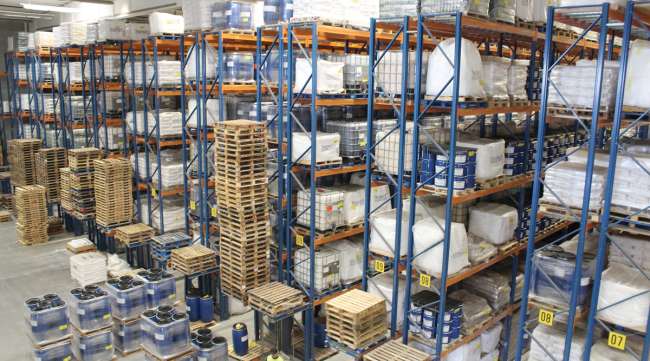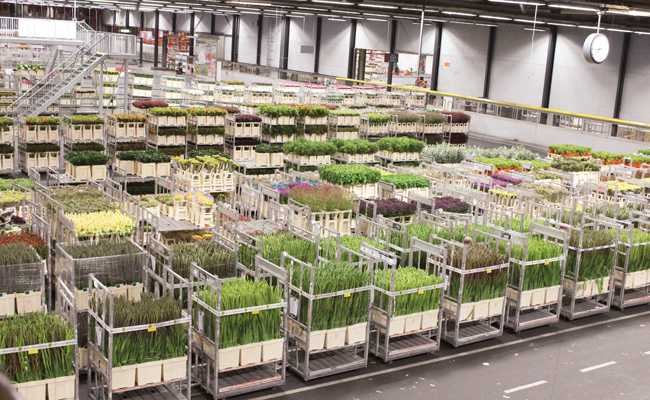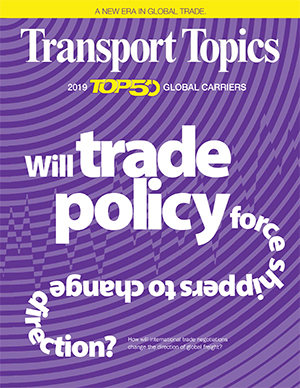Special to Transport Topics
Dutch Shippers, Logistics Firms Prepare for Brexit Disruption

[Stay on top of transportation news: Get TTNews in your inbox.]
AMSTERDAM — The long and arduous path to Brexit has been rife with political wrangling, but companies and government agencies have been preparing for disruption despite the uncertainty of the outcome.
The United Kingdom’s decision to leave the European Union created a ripple effect in other countries long before leaders reached a tentative deal on its withdrawal from the political and economic union of 28 member states.
In the Netherlands alone, an estimated 72,000 companies tied to freight, logistics and supply chains could face additional customs regulations including health, safety and quality inspections; documentation; and new taxes and fees when doing business in the U.K.
Freight-focused entities have been scurrying for months, or even years, to put in place contingency plans so they can smoothly transition to new regulations. Without these plans, gaps could form in supply chains as freight is delayed or rejected at U.K.-EU borders.
Port of Rotterdam employees worked for nearly two years to ensure trade continues with minimal disruptions after Brexit. The port authority and customs each examined multiple scenarios to fit the likely outcomes, with a “hard Brexit” deemed particularly disruptive.
Successful freight movement relies on all participants in the supply chain. The port is trying to minimize disruptions on its own side, but “we can’t prepare for a cascading effect on the U.K. side,” said Leon Willems, press officer for the Port of Rotterdam.
Main Brexit preparations include early cooperation with key partners such as the logistics companies using Portbase, the port community’s smart information platform. Based on a simulation study, the port authority developed extra truck parking capacity — more than 700 temporary spots — for trucks that might experience delays while readying proper documentation.
Amsterdam Airport Schiphol also spent significant time devising contingency plans, considering the U.K. is its biggest domestic passenger market. Brexit has the potential to increase passenger waiting times, which in turn could delay cargo on those flights, but Schiphol staff hopes to mitigate that conflict.
“We are ready to put everything in place. We just have to wait for England,” said Bart Pouwels, head of cargo at Amsterdam Airport Schiphol.
Customs officials at the Port of Rotterdam and Amsterdam Airport Schiphol have been collaborating with partners on advance plans and performing additional employee training for new regulations and processes. Both already have implemented extensive employee training programs — mostly for humans but also for contraband-sniffing dogs — on how to spot illegal and hazardous items in freight entering the EU.
Port customs alone is in the process of recruiting, hiring and training at least 750 new employees to address the influx of work that the additional post-Brexit hurdles will create. The Portbase system is considered a major way to expedite processing, and authorities are trying to get its data up to speed as quickly as possible.
More onerous border-crossing procedures will undo the ease of suppliers sending freight directly from the EU to the U.K.
“We can prepare, but there is still so much [that is] not sure,” said Eline van den Berg, program manager at the Holland Flower Alliance. But she said one thing is certain: Brexit will create a “complete shift in our own supply chain” at Royal FloraHolland, one of the largest auction companies and plant distribution centers in the world.

Exporters such as Dutch flower company Royal FloraHolland could face higher costs and more documentation for U.K.-bound goods. (Katie Pyzyk for Transport Topics)
Royal FloraHolland anticipates that changes to export documentation, phytosanitary documentation and inspection frequency and stringency — as well as additional taxes and fees — could disrupt the flower and plant supply chain.
Costs could rise to account for the labor and time related to documentation and inspections, which suppliers potentially would pass along to consumers. U.K. citizens would be particularly hard hit in that instance because 95% of its volume of plants and flowers is delivered through Dutch exporters, van den Berg said.
“One thing is for sure with Brexit: If people in the U.K. want to buy flowers, it has to come from another country because they don’t have enough [domestic] production,” she said.
Suppliers of other goods have rolled out their own Brexit plans. Employees at Bleckmann’s fashion distribution centers have been fielding inquiries from customers about problems that could arise, said Jurrie-Jan Tap, Bleckmann’s chief sales officer.
He suggests Brexit will create more business for warehousing and distribution facilities. Having a presence in both the U.K. and mainland Europe after Brexit will reduce the risk of hold-ups from new border-crossing requirements.
Neele-Vat Logistics is seeing a similar shift. It has experienced a 500% increase in customer requests to set up dual infrastructure, especially temporary storage.
“In case anything happens, [customers] want to have product on the continental Europe so we can distribute it. Also, the other way around,” Neele-Vat Logistics CEO Cuno Vat said.
He notes that many Asian and North American businesses had locations solely in the U.K., but the burden of going through two sets of customs to reach the EU is prompting many of them to rethink that set-up. “We are redesigning our supply chain,” Vat said.
But new regulations, documentation and processes mean “you will lose some time in transport and need more transport equipment,” he said. Thus Neele-Vat is expanding its fleet of trucks and trailers by about 25% to handle the same volume of freight as before Brexit.
The uncertainty of Brexit prompted most customers to wait to take action until the U.K. and EU governments inked a deal, Tap said.
“The whole Brexit thing is probably the scariest [economic consideration] at the moment,” Tap said.
He, like others, speculates that even with the well-laid plans, the readjustment period after Brexit takes effect is “going to be chaos.”
Want more news? Listen to today's daily briefing:


